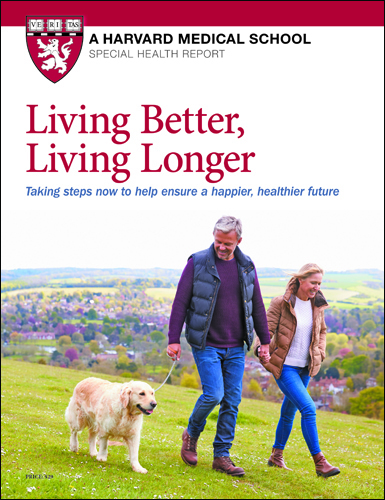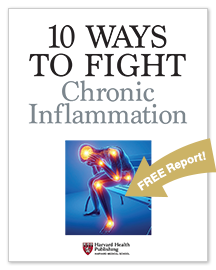Heart rate variability: How it might indicate well-being
- Reviewed by Howard E. LeWine, MD, Chief Medical Editor, Harvard Health Publishing; Editorial Advisory Board Member, Harvard Health Publishing

When it comes to your health, it is now easy to measure and track all kinds of information. In the comfort of our homes, we can check our weight, blood pressure, number of steps, calories, heart rate, and blood sugar. Researchers have been exploring another data point called heart rate variability (HRV) as a possible marker of resilience and behavioral flexibility.
What is HRV?
HRV is simply a measure of the variation in time between each heartbeat. This variation is controlled by a primitive part of the nervous system called the autonomic nervous system (ANS). It works behind the scenes, automatically regulating our heart rate, blood pressure, breathing, and digestion among other key tasks. The ANS is subdivided into two large components: the sympathetic and the parasympathetic nervous system, also known as the fight-or-flight mechanism and the relaxation response.
The brain is constantly processing information in a region called the hypothalamus. The ANS provides signals to the hypothalamus, which then instructs the rest of the body either to stimulate or to relax different functions. It responds not only to a poor night of sleep, or that sour interaction with your boss, but also to the exciting news that you got engaged, or to that delicious healthy meal you had for lunch. Our body handles all kinds of stimuli and life goes on. However, if we have persistent instigators such as stress, poor sleep, unhealthy diet, dysfunctional relationships, isolation or solitude, and lack of exercise, this balance may be disrupted, and your fight-or-flight response can shift into overdrive.
Check heart rate variability
The gold standard is to analyze a long strip of an electrocardiogram done in the doctor's office. But in recent years, companies have launched apps and wearable heart rate monitors that do something similar. The accuracy of these methods is still under scrutiny, but the technology is improving. If you do wish to give it a try, chest strap monitors tend to provide a more accurate measure of HRV than wrist devices.
HRV may offer a noninvasive way to signal imbalances in the autonomic nervous system. Based on data gathered from many people, if the system is in more of a fight-or-flight mode, the variation between subsequent heartbeats tends to be lower. If the system is in more relaxed state, the variation between beats may be higher.
This suggests some interesting possibilities. People who have a high HRV may have greater cardiovascular fitness and may be more resilient to stress. HRV may also provide personal feedback about your lifestyle and help motivate those who are considering taking steps toward a healthier life. You might see a connection to HRV changes as you incorporate more mindfulness, meditation, sleep, and especially physical activity into your life. For those who love data and numbers, this could be a way to track how your nervous system is reacting not only to the environment, but also to your emotions, thoughts, and feelings.
The bottom line
There are questions about the accuracy, reliability and overall usefulness of tracking HRV. While HRV has been linked to overall physical fitness, the correlation between changes in HRV and how your autonomic nervous system is functioning will require much more research. Still, if you decide to use HRV as another piece of health data, do not get too confident if you have a high HRV, or too worried if your HRV is low. Think of HRV as another way you might tap into your body and mind are responding to what your daily experiences.
Adapted from a Harvard Health Blog post by Marcelo Campos, MD
About the Author

Harvard Health Publishing Staff
About the Reviewer

Howard E. LeWine, MD, Chief Medical Editor, Harvard Health Publishing; Editorial Advisory Board Member, Harvard Health Publishing
Disclaimer:
As a service to our readers, Harvard Health Publishing provides access to our library of archived content. Please note the date of last review or update on all articles.
No content on this site, regardless of date, should ever be used as a substitute for direct medical advice from your doctor or other qualified clinician.
















